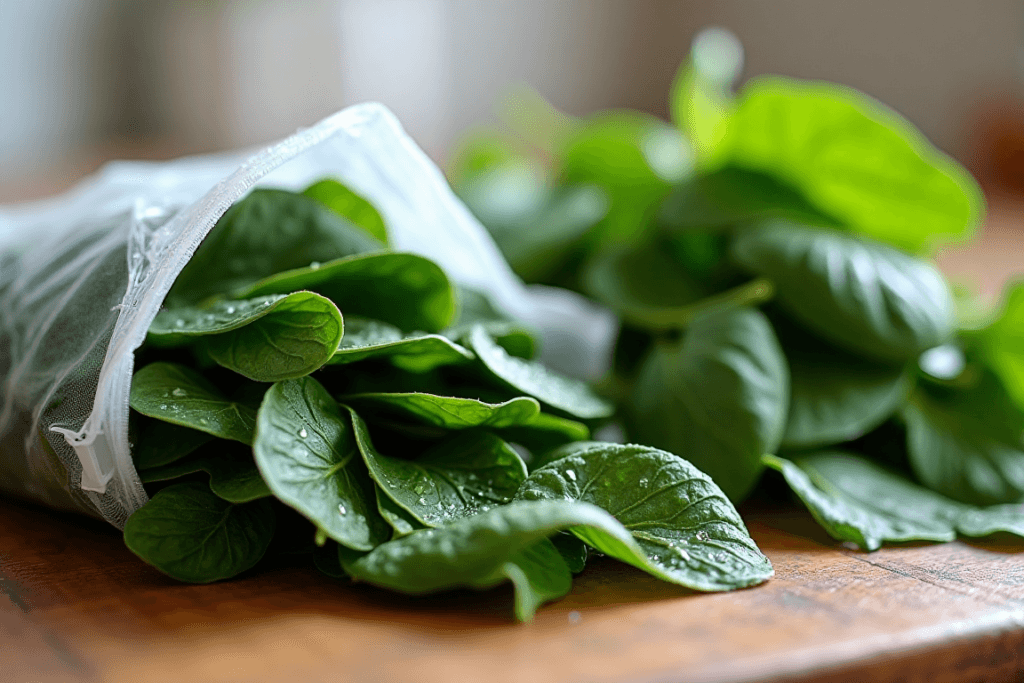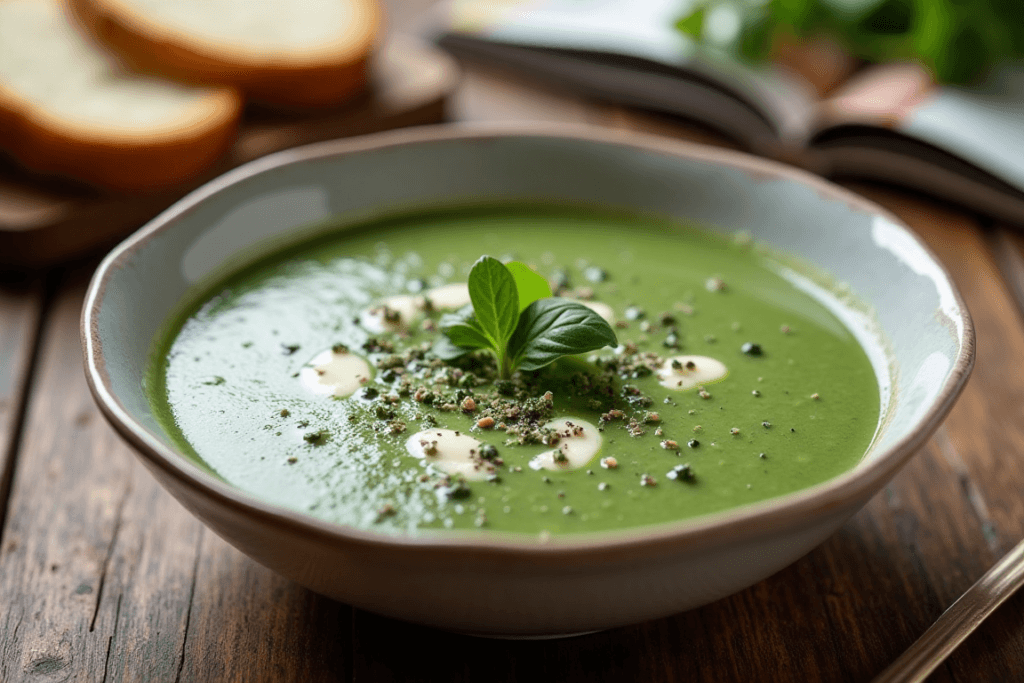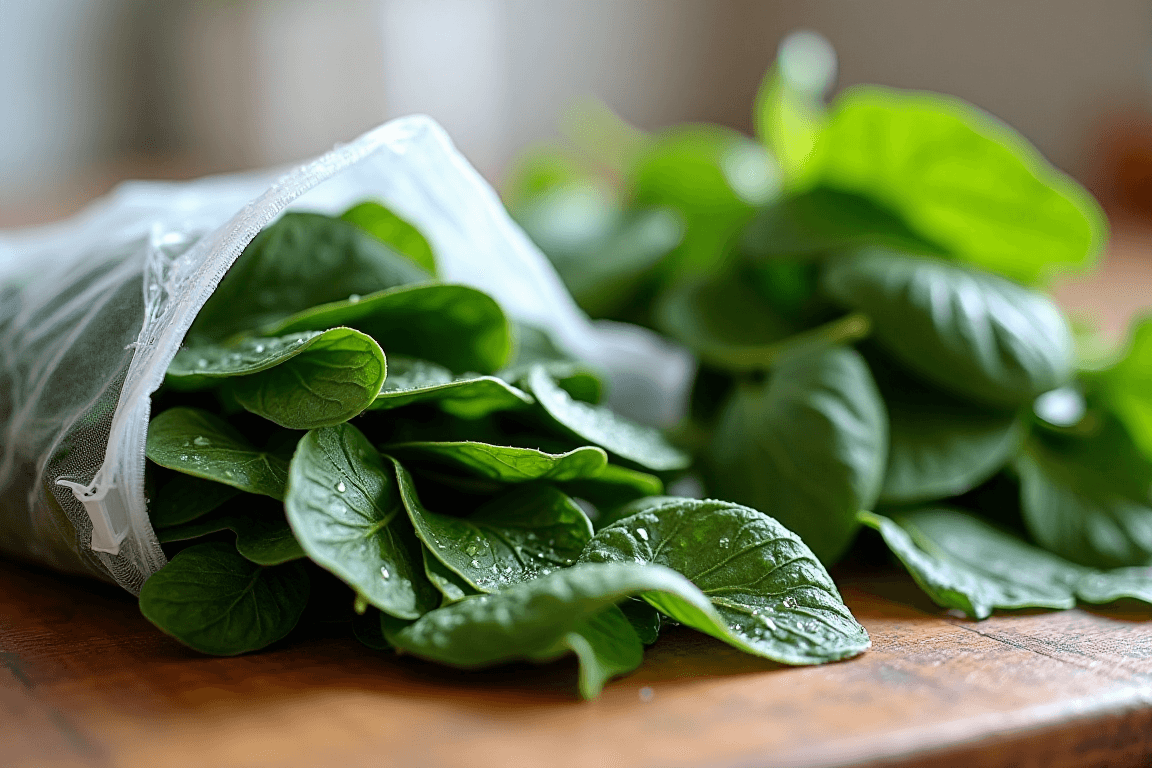Frozen spinach has become a staple in many households, celebrated for its convenience, affordability, and ability to retain its nutritional value. Whether you’re trying to save time in the kitchen or looking for a nutrient-dense ingredient to complement your meals, frozen spinach is an accessible option that doesn’t compromise on health benefits.
Introduction
Spinach is a renowned superfood, packed with vitamins, minerals, and antioxidants. However, maintaining fresh produce can be challenging due to its short shelf life and higher cost. This is where frozen spinach steps in.
Frozen vegetables, including spinach, have gained popularity in recent years. Thanks to advances in freezing technology, they can retain much of their nutritional content while offering a longer storage life. But how does frozen spinach compare to fresh? Is it a truly healthy alternative? This article explores the nutritional value, health benefits, potential concerns, and practical tips for using frozen spinach in your diet.
Frozen spinach is often flash-frozen immediately after harvest, preserving its vibrant green color and locking in essential nutrients. As a result, it offers a practical solution for those looking to maintain a balanced diet without frequent trips to the grocery store. But is it as healthy as it seems? Let’s dive deeper into what frozen spinach brings to the table.

Nutritional Benefits of Frozen Spinach
Frozen spinach is often celebrated for its impressive nutritional profile, making it a fantastic addition to various dishes. Despite being processed, frozen spinach retains most of its nutrients, making it comparable to fresh spinach in terms of health benefits. Let’s explore its nutrient content and why it’s a powerhouse ingredient.
Nutrient Retention During Freezing
One of the common concerns about frozen vegetables is whether the freezing process compromises their nutritional value. Fortunately, spinach is usually flash-frozen within hours of being harvested, preserving the majority of its vitamins and minerals. Flash freezing helps:
- Minimize nutrient loss: Vitamins like A, C, and K remain largely intact during the process.
- Preserve antioxidants: Compounds that fight free radicals are effectively retained.
- Lock in freshness: Unlike fresh spinach, which can lose nutrients during storage and transportation, frozen spinach maintains its nutritional content for longer.
Studies have shown that frozen spinach often contains as much, if not more, vitamin C compared to fresh spinach stored for several days.
Key Vitamins and Minerals
Frozen spinach boasts a rich array of essential nutrients that contribute to overall health. Some highlights include:
- Vitamin A: Crucial for eye health, immune function, and skin integrity. A single serving of frozen spinach can fulfill a significant portion of your daily vitamin A needs.
- Vitamin K: Known for its role in blood clotting and bone health, spinach is one of the top sources of this essential nutrient.
- Iron: Spinach is famous for its iron content, which supports red blood cell production and prevents anemia. While the bioavailability of iron in spinach can vary, pairing it with vitamin C-rich foods can enhance absorption.
- Calcium: Essential for bone health, calcium in spinach contributes to stronger teeth and bones.
- Magnesium and Potassium: Both of these minerals support muscle function, heart health, and energy production.
- Fiber: Frozen spinach provides dietary fiber that aids digestion, promotes gut health, and helps maintain steady blood sugar levels.
Low-Calorie Superfood
Frozen spinach is naturally low in calories, making it an excellent choice for those aiming to manage their weight. A standard serving (about 100 grams) contains:
- Calories: Approximately 23 calories.
- Carbohydrates: Minimal, with a good portion coming from dietary fiber.
- Fats: Negligible, making it a heart-healthy option.
- Protein: Around 2-3 grams, contributing to its satiety value.
Its nutrient density ensures you get a significant amount of vitamins and minerals without adding excessive calories to your diet. This makes frozen spinach particularly appealing for those on calorie-restricted or low-carb diets.
Frozen spinach stands out as an excellent source of essential nutrients while offering the convenience of long-term storage. Next, we’ll delve into the specific health benefits of frozen spinach and how it can contribute to various aspects of your well-being.
Health Benefits of Frozen Spinach
Frozen spinach isn’t just convenient—it also provides numerous health benefits that make it a valuable addition to your diet. From promoting heart health to boosting immunity, the nutrients in frozen spinach work together to support your overall well-being.

Supports Bone Health
Spinach is a standout source of Vitamin K, a nutrient essential for bone formation and maintenance. Vitamin K helps regulate calcium in the body, promoting strong bones and reducing the risk of osteoporosis. In addition, frozen spinach contains calcium and magnesium, two key minerals that further contribute to bone strength and density.
- Calcium: Essential for maintaining bone structure and preventing fractures.
- Magnesium: Aids in calcium absorption and supports bone mineralization.
Including frozen spinach in your meals regularly can help fortify your skeletal system, especially when paired with other calcium-rich foods.
Boosts Immunity
Frozen spinach is packed with Vitamin A, Vitamin C, and antioxidants, all of which are critical for a robust immune system:
- Vitamin A: Supports the production of white blood cells, which are vital for fighting infections and pathogens.
- Vitamin C: Enhances the immune response by protecting cells from damage caused by free radicals. It also promotes the production of collagen, which supports healthy skin—a natural barrier against germs.
- Antioxidants: Spinach contains compounds like beta-carotene and lutein, which help neutralize free radicals and reduce inflammation, improving the body’s ability to combat illness.
By adding frozen spinach to soups, stews, or smoothies, you can give your immune system the boost it needs, particularly during flu season or periods of stress.
Heart Health
Spinach contributes to cardiovascular health in several ways:
- Reduces Cholesterol: Spinach is rich in soluble fiber, which can help lower LDL cholesterol levels by binding to cholesterol molecules and removing them from the body.
- Manages Blood Pressure: The potassium and magnesium in frozen spinach help regulate blood pressure by relaxing blood vessels and counteracting the effects of sodium.
- Anti-inflammatory Properties: Antioxidants in spinach reduce inflammation in blood vessels, which is a common precursor to heart disease.
Research shows that diets high in leafy greens like spinach are associated with a lower risk of heart disease. Incorporating frozen spinach into your meals is an easy way to support heart health.
Aids in Weight Management
As a low-calorie and nutrient-dense food, frozen spinach is ideal for those looking to lose or maintain weight. Its high fiber content promotes a feeling of fullness, which can reduce overall calorie intake. Additionally, the protein in spinach supports muscle maintenance and metabolic activity.
Promotes Digestive Health
Frozen spinach is an excellent source of dietary fiber, which is crucial for a healthy digestive system. Fiber helps to:
- Regulate bowel movements.
- Prevent constipation.
- Support the growth of beneficial gut bacteria.
The combination of fiber and water content in spinach also helps keep the digestive tract hydrated and functioning efficiently.
Improves Skin and Eye Health
The Vitamin A and antioxidants in spinach benefit both skin and eyes:
- Skin Health: Vitamin A promotes cell regeneration, helping to maintain a clear, youthful complexion.
- Eye Health: Antioxidants like lutein and zeaxanthin protect against age-related macular degeneration and cataracts by shielding the eyes from harmful UV rays and blue light.
From boosting your immune system to promoting heart health, frozen spinach is a versatile superfood that can significantly enhance your health. In the next part, we’ll compare frozen spinach to its fresh counterpart, discussing their nutritional differences and practical advantages.
Frozen vs. Fresh Spinach: Which Is Better?
When it comes to spinach, both frozen and fresh options offer distinct advantages. The choice often depends on nutritional value, convenience, cost, and environmental impact. Let’s explore these factors in detail to determine whether frozen spinach can stand up to its fresh counterpart.
Differences in Nutritional Value
A common misconception is that frozen vegetables, including spinach, are less nutritious than fresh ones. However, the reality is more nuanced:
- Nutrient Retention in Frozen Spinach: Flash freezing spinach immediately after harvest helps preserve essential vitamins and minerals. In fact, frozen spinach often retains higher levels of vitamin C compared to fresh spinach stored for several days, as exposure to air, light, and heat can degrade nutrients in fresh produce.
- Fresh Spinach Nutrient Decline: While fresh spinach is highly nutritious when freshly picked, its nutrient content diminishes quickly. For example:
- Vitamin C: Can degrade by 50% within a few days of refrigeration.
- Iron: May oxidize over time, reducing bioavailability.
- Cooking Impact: Both frozen and fresh spinach lose some nutrients when cooked. However, frozen spinach, already pre-cooked during processing, may require shorter cooking times, further preserving nutrients.
Convenience and Cost Comparison
For many people, convenience and affordability are critical factors in choosing between fresh and frozen spinach:
- Frozen Spinach:
- Longer Shelf Life: Frozen spinach can be stored for months without losing quality, making it a reliable option for meal prep.
- Pre-washed and Pre-chopped: Saves time in the kitchen, especially for recipes requiring large amounts of spinach.
- Cost-Effective: Typically more affordable per serving, especially when fresh spinach prices fluctuate seasonally.
- Fresh Spinach:
- Immediate Use: Ideal for salads, sandwiches, and recipes requiring raw spinach.
- Higher Upfront Cost: Fresh spinach tends to be more expensive, especially organic varieties.
- Shorter Shelf Life: Spoils within a week, increasing the risk of food waste.
Frozen spinach shines as a practical and budget-friendly option, especially for cooked dishes where texture isn’t a primary concern.
Environmental Impact
The environmental footprint of frozen versus fresh spinach is another important consideration:
- Frozen Spinach:
- Lower Food Waste: Its long shelf life reduces waste, as it doesn’t spoil as quickly as fresh spinach.
- Energy Costs: Requires freezing and refrigeration, which can increase energy use compared to fresh produce.
- Fresh Spinach:
- Transportation and Spoilage: Fresh spinach often requires fast transport and careful storage to prevent spoilage, which can increase carbon emissions.
- Local Sourcing Advantage: Buying local fresh spinach can reduce its environmental impact, but it’s not always available year-round.
Taste and Texture
While frozen spinach retains much of its nutritional value, its texture can change after freezing and thawing:
- Frozen Spinach: Softer and more compact, making it better suited for cooked dishes like soups, stews, and casseroles.
- Fresh Spinach: Retains a crisp texture that’s perfect for raw applications such as salads and sandwiches.
Both frozen and fresh spinach have their own merits, and the best choice depends on your dietary needs, budget, and recipe requirements. In the next part, we’ll discuss how to incorporate frozen spinach into your diet with easy recipes, cooking tips, and pairing ideas.
How to Use Frozen Spinach in Your Diet
Frozen spinach is one of the most versatile ingredients you can have in your kitchen. Its long shelf life, nutrient density, and ease of preparation make it an excellent choice for quick and healthy meals. Whether you’re looking to add greens to your breakfast or enhance the flavor of your dinner, frozen spinach has you covered.
Easy and Quick Recipes
Incorporating frozen spinach into your meals is incredibly simple. Here are some delicious ideas:
- Spinach Smoothies:
- Blend a handful of thawed frozen spinach with a banana, some frozen berries, almond milk, and a scoop of protein powder for a nutrient-packed breakfast or snack.
- Benefits: Adds vitamins and fiber without altering the flavor significantly.
- Creamy Spinach Soup:
- Sauté onions and garlic, add frozen spinach, vegetable broth, and a splash of cream or coconut milk. Blend until smooth for a hearty, healthy soup.
- Benefits: A warming dish rich in vitamins A and K.
- Spinach and Cheese Casserole:
- Combine thawed spinach with eggs, shredded cheese, breadcrumbs, and your choice of spices. Bake until golden brown for a delicious side dish.
- Benefits: A protein-rich option that’s perfect for meal prep.
- Pasta Add-In:
- Stir thawed spinach into pasta sauces or lasagna layers to boost fiber and nutrients.
- Benefits: An easy way to add greens to family meals.
- Spinach Omelette:
- Whisk eggs with spinach and a sprinkle of cheese for a quick breakfast or lunch.
- Benefits: High in protein and perfect for low-carb diets.
Cooking Tips for Maximum Nutrition
To ensure you retain the nutrients in frozen spinach while enhancing its flavor, follow these tips:
- Avoid Overcooking: Prolonged cooking can reduce nutrient levels. Add spinach towards the end of cooking to maintain its vibrant color and nutritional value.
- Steam Instead of Boil: Steaming preserves more nutrients compared to boiling, where vitamins can leach into the water.
- Use Thawing Wisely:
- For recipes like casseroles or soups, you can add frozen spinach directly without thawing.
- For other dishes, thaw spinach by placing it in the refrigerator overnight or using the microwave. Squeeze out excess water to prevent sogginess.
- Enhance Absorption of Nutrients: Pair spinach with healthy fats (like olive oil or avocado) to increase the absorption of fat-soluble vitamins such as A and K.
Pairing with Other Ingredients
Frozen spinach blends seamlessly with a range of ingredients, making it a versatile choice for diverse culinary creations:
- Proteins: Chicken, fish, tofu, and eggs are excellent companions to spinach’s earthy flavor. These combinations create nutritionally balanced and flavorful meals.
- Grains: Rice, quinoa, and whole-grain pasta readily absorb spinach’s juices, adding depth and heartiness to dishes.
- Dairy: Ingredients like cheese, cream, and yogurt lend richness to spinach-based recipes while enhancing the texture and flavor.
- Spices and Herbs: Garlic, nutmeg, black pepper, and dill accentuate spinach’s natural taste, bringing out its subtle sweetness and savory undertones.
Frozen Spinach for Meal Prep
it’is an invaluable asset for meal prepping, offering a long shelf life and unparalleled convenience. Having a bag of this superfood in your freezer means you’ll always have a nutrient-packed ingredient within reach. Consider these practical ideas to incorporate it into your routine: Keeping a bag of frozen spinach in your freezer ensures you’ll always have a nutrient-rich option ready to go. Here are some practical ideas:
- Smoothie Packs: Pre-measure portions of spinach, along with fruits and other ingredients, for quick blending into nutrient-packed green smoothies.
- Soups and Stews: Incorporate frozen spinach into large-batch recipes that can be frozen and reheated, saving time without sacrificing flavor or nutrition.
- Pre-Cooked Portions: Prepare and store pre-cooked spinach portions to quickly add to grains, omelets, or stir-fries for a healthy boost.
Frozen spinach is a versatile, time-saving ingredient that’s easy to incorporate into any meal. Up next, we’ll address some potential concerns about frozen spinach, including additives, texture, and pesticide residues.
Potential Concerns About Frozen Spinach
While frozen spinach is undeniably healthy and convenient, there are a few potential concerns to be aware of. Understanding these will help you make informed choices and maximize the benefits of frozen spinach in your diet.
Additives and Preservatives
Frozen spinach is typically flash-frozen without the need for preservatives, but not all products are created equal. Some brands may include added ingredients such as:
- Sodium or Salt Solutions: These can be added to enhance flavor but may increase the sodium content.
- Seasonings: Pre-seasoned frozen spinach might contain additives, sugar, or unhealthy fats.
How to Avoid Unwanted Additives:
- Check the ingredient list for “spinach” as the sole ingredient.
- Opt for organic or minimally processed brands when possible.
- Avoid frozen creamed spinach if you’re looking for a low-calorie option, as it often contains high levels of fat and sodium.
Texture Changes After Freezing
Frozen spinach undergoes blanching (brief boiling before freezing) to preserve color and nutrients. However, this process can affect the texture:
- Softness: Thawed spinach tends to be softer and more watery compared to fresh spinach.
- Sogginess in Recipes: If not properly drained, the extra moisture can affect the texture of your dishes.
Solutions for Texture Concerns:
- Squeeze out excess water after thawing to prevent sogginess in recipes like omelets or casseroles.
- Use frozen spinach directly in dishes that already require cooking, such as soups or stews, where texture is less noticeable.
Pesticide Residues
Like fresh produce, frozen spinach can contain pesticide residues unless it’s organically sourced. Spinach consistently ranks high on the Environmental Working Group’s “Dirty Dozen” list due to its susceptibility to pesticide contamination.
Minimizing Pesticide Exposure:
- Choose organic frozen spinach to avoid synthetic pesticides.
- Rinse frozen spinach briefly before cooking to remove any residual contaminants, though most residues are minimal after blanching.
Nutritional Misconceptions
Some people assume that frozen spinach is less nutritious than fresh or that cooking it strips away all the benefits. While there is a slight loss of water-soluble nutrients like vitamin C during blanching and freezing, the overall nutritional value remains high.
Clarification:
- Frozen spinach retains most of its nutrients and is often more nutrient-dense than fresh spinach that’s been stored for days.
- Proper cooking methods, such as steaming or quick sautéing, help preserve its nutritional benefits.
Overreliance on Convenience Foods
While frozen spinach is a great convenience food, relying solely on frozen vegetables may limit the variety in your diet. Fresh vegetables bring their own unique nutrients and textures to meals.
Balanced Approach:
- Incorporate both fresh and frozen spinach into your diet for maximum variety and benefits.
- Use frozen spinach for cooked dishes and fresh spinach for salads or raw consumption.
FAQs About Frozen Spinach
Does freezing spinach reduce nutrients?
No, freezing spinach actually helps preserve nutrients. The flash-freezing process locks in most vitamins and minerals, ensuring frozen spinach remains highly nutritious.
Is frozen spinach as good as fresh spinach?
Yes, frozen spinach is as nutritious as fresh spinach, especially when the latter has been stored for several days. Frozen spinach can retain higher levels of certain nutrients like vitamin C.
Can frozen spinach be eaten raw?
While it’s safe to eat after thawing, frozen spinach is blanched during processing and is better suited for cooked dishes. Eating it raw might not offer the same fresh taste and texture as fresh spinach.
How long can frozen spinach be stored?
Frozen spinach can be stored for up to 8-12 months in a properly sealed package without losing quality. Always check the expiration date and keep it at a consistent freezing temperature.
Is frozen spinach good for smoothies?
Absolutely! Frozen spinach blends well into smoothies and adds nutrients without altering the flavor. It’s a great option for green smoothie recipes.
How to defrost frozen spinach properly?
You can thaw frozen spinach by:
- Refrigerating it overnight.
- Microwaving it using a defrost setting.
- Adding it directly to hot dishes, skipping the thawing process altogether.
Conclusion
Frozen spinach is a healthy, convenient, and affordable alternative to fresh spinach, offering numerous nutritional and practical benefits. With its long shelf life and nutrient retention, it’s a versatile ingredient suitable for a variety of dishes. While there are minor concerns like texture changes and potential pesticide residues, these can be addressed with proper preparation and careful selection of brands.
Incorporating frozen spinach into your diet is an excellent way to enjoy the benefits of leafy greens year-round without compromising on quality. Whether blended into smoothies, stirred into soups, or baked into casseroles, frozen spinach proves to be a superfood that’s both accessible and nutritious.

